In total, Dogwood approved 287 funding requests of the 354 grant applications in 2021. The nonprofit also reports that it added 21 new staff members to the organization.


In total, Dogwood approved 287 funding requests of the 354 grant applications in 2021. The nonprofit also reports that it added 21 new staff members to the organization.

Many Western North Carolina residents who spoke with Xpress say they shared their negative responses after COVID-19 vaccination with health providers. But they also say their concerns have been minimized or ignored, driving a lack of trust about the vaccines and the broader medical establishment.

Editor’s note: In preparing this story, Xpress also reached out to Mission Health seeking comment, but while an initial contact was made, the organization ultimately did not respond to the paper’s request for an interview. As a longtime hospital chaplain, Molly Garnett is used to navigating emotionally challenging moments. In her job, she offers comfort […]

Members of the public can anonymously dispose of unused or expired opioid medications at HCA Healthcare’s Crush the Crisis events at various locations. Local law enforcement agencies are partnering with HCA Healthcare for the takeback event on Saturday, Oct. 23. The drop-off locations are Mission Hospital in Asheville, 1 Hospital Drive, 10 a.m.-2 p.m.; Mission […]
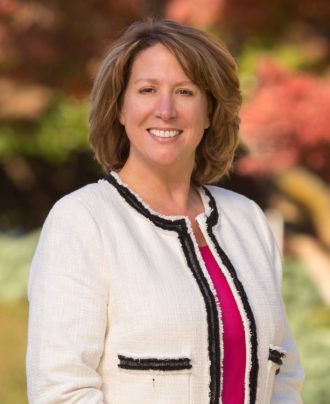
From February through early August, the Emergency Department at Pardee administered 400 infusions of the Regeneron antibody therapy, says chief nursing officer Carol Stefaniak. But following the infusion clinic’s relocation to an outpatient facility in Hendersonville Aug. 11, another 350 infusions were administered, reflecting high demand for the drug.

“How can we ever end this pandemic when even our health care providers remain lax and unwilling to make the hard choice to get and to require vaccinations?”
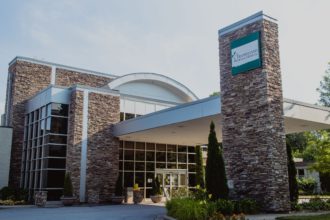
HCA Healthcare’s acquisition of Asheville-based Mission Health has driven a shakeup among physicians going to work elsewhere.

Xpress reached out to learn about the concerns of health care workers who are choosing to avoid or delay taking the COVID-19 vaccine, as well as the thoughts of those who enthusiastically or reluctantly received the shots.

Three Western North Carolina hospitals were named among the best in the country in Healthgrades’ 2021 America’s Best Hospitals. The 2021 Child Health Report Card shows the state failing in several areas, including mental health, substance use, birth outcomes and housing and economic security. Plus more health and wellness news in this week’s roundup.

“Our biggest problem right now is that millions of people want a shot, but we only have hundreds of thousands of doses,” said Gov. Roy Cooper at a Jan. 27 press conference. “There will be a time when everyone can get one, and we want to make sure everyone can access it as quickly as possible.”

Retired Rear Adm. Richard Houck of Transylvania County, attorney Fred Jones of Macon County and Bishop José McLoughlin of Henderson County will join the board of Western North Carolina’s largest nonprofit as Buncombe County’s Dr. John Ball departs. The change fulfills requirements stipulated in N.C. Attorney General Josh Stein’s approval of Mission Health’s sale to HCA Healthcare.
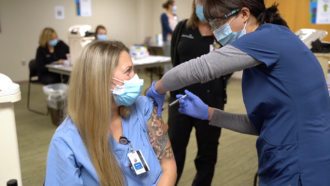
Asheville residents may have hunkered down for the holidays under a blanket of snow and ice, but across the region, the COVID-19 pandemic rages on. Here’s what you may have missed over the Christmas holiday.

It’s time to celebrate the creativity of our community’s response to the pandemic, even as we acknowledge the pain, uncertainty and loss that surely still lie ahead. Community members weigh in on the successes that fill them with pride as they look back on 2020.

Xpress Assistant Editor Daniel Walton and local community figures discuss how the year’s events have accelerated many of the issues that were already facing Western North Carolina.

While there’s light at the end of the proverbial COVID-19 tunnel, Western North Carolina residents cannot let down their guard. Over the last week, the percent of positive COVID-19 tests has risen to 7.8% in Buncombe County; the county’s daily COVID-19 case counts now average 100 or higher.
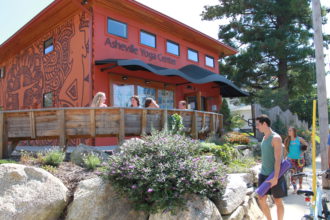
Asheville Yoga Center, a pillar of the city’s emerging “wellness district” in the area around South Liberty Street, is up for sale. The transition represents the next phase of changes brought about by the divorce of the center’s founders, Stephanie and Sunny Keach, according to Melissa Driver, the company’s general manager. Also in brief: prostate cancer screening tips for men, new programs and services and a new website that illustrates the impact of the opioid epidemic on the local community.

Despite a lack of definitive evidence that COVID-19 can spread through heating, ventilation and air conditioning systems, residential and commercial property owners are looking for ways to preemptively protect themselves and their customers from potential airborne transmission.
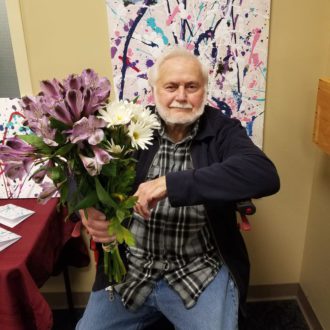
In April, Pardee UNC Health Care notified MountainCare that it would no longer donate the use of the 6,000-square-foot building that houses MountainCare’s Henderson County adult day program. MountainCare now must move out by the end of the year to allow Pardee to reuse or sell the building and seeks a free or low-cost space where the program can continue operating.
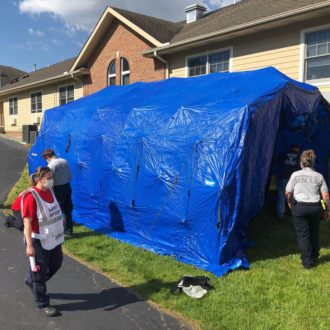
Interventions by ‘strike teams’ help manage outbreaks at nursing homes; COVID-19 cases mount at Mission Health; St. Luke’s hastens test results through a partnership.
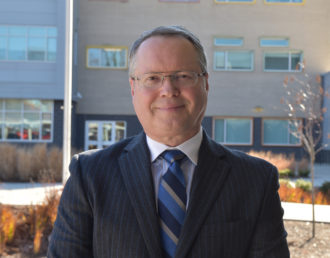
Instead of bringing students back to the classroom under the Plan B model outlined by Gov. Roy Cooper, as had been announced on July 14, the Asheville City Board of Education voted unanimously to follow the remote-only Plan C for at least nine weeks at a July 23 special called meeting.
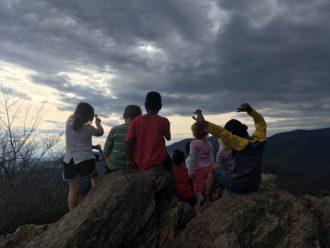
Two new programs, High Intensity Parenting and Lifeline, will provide enhanced training and round-the-clock access to supportive resources for foster parents, including financial incentives.